With a new Covid variant – or several, to be more accurate – sweeping the UK, it’s perhaps too soon to reflect on lessons to be learnt from the handling of the pandemic.
Prime minister Boris Johnson has promised a public inquiry, but he has a point when he says that with the UK’s schools closed down, the hospitality sector shuttered and airlines grounded, now is not the time.
Yet there are some basics that surely ought to have been digested by now. Foremost of which is the chaos the PM and his ministers can cause simply by opening their mouths.
Today, Matt Hancock warned shoppers in areas hit by cases of the South African Covid variant not to go food shopping if they could avoid it by living off food in their freezers and cupboards.
“If you have food in the house and you therefore don’t have to go shopping, then please don’t go shopping,” was his message to people living in Bristol, Surrey, Walsall, parts of London, Kent, Hertfordshire and Lancashire (a list that will surely grow).
This message came despite government ministers reassuring industry leaders only hours earlier that there was no intention to change the regulations or recommendations that categorise food shopping as an essential activity.
It’s a classic case of ministers making up policy on the hoof, without thinking through the consequences.
Meanwhile, Hancock’s colleagues at Defra have moved to reassure worried food companies that the new variant will not scupper what they had hoped was a stabilising situation when it comes to workforce absence levels.
Food workers, it told them in the latest war room talks this week, should report as usual, because they are key workers providing essential services. Er, just like the supermarkets you have told people to avoid, Mr Hancock?
The health secretary is, of course, notorious for his disconnect with the industry. Right at the start of the pandemic he told the audience of BBC’s Question Time the government was working hand in glove with retailers to prevent food shortages.
“Crucially, we are working with the supermarkets to make sure that, if people are self-isolating, then we will be able to get the food and supplies that they need,” he said, only for it to emerge that no such talks had taken place.
Now several of the government top team fighting the crisis seem to be trying to scare the public away from food retailers, either deliberately or otherwise.
Last month, vaccines minister Nadhim Zahawi warned supermarkets were a particular source for spread of the virus.
Within days, Johnson himself was warning shoppers they could contract the virus by touching supermarket produce, urging them to “only touch what they are going to buy”.
It’s perhaps testament to the lack of credibility behind any of these claims that the ill-advised words of our ministers have not caused the sort of panic-buying and stockpiling that threatened to cause major food shortages a year ago.
But ministers must realise that when they in effect encourage the public to only shop online or stockpile products to avoid going to “dangerous” supermarkets, they are playing with fire.
Despite the huge expansion of online capacity in supermarkets, and the development of delivery services from the sectors forced to shut down, supermarkets would not be able to cope with demand if as few as one in five of their customers took Hancock’s advice and shopped online only. Let alone if everyone stays home and orders online.








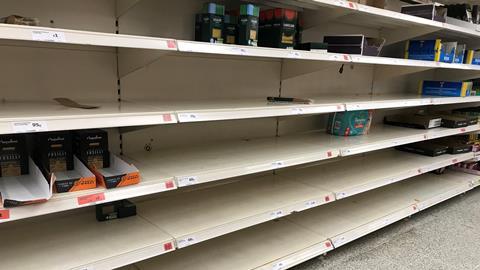


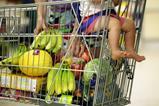

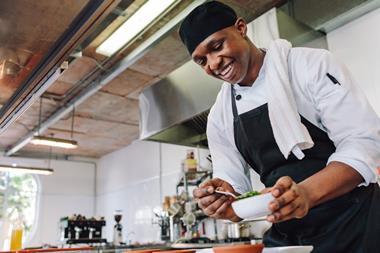



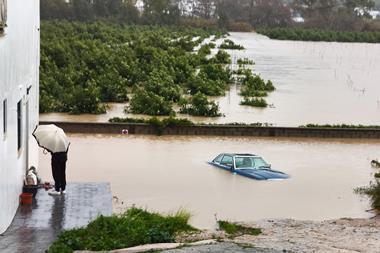

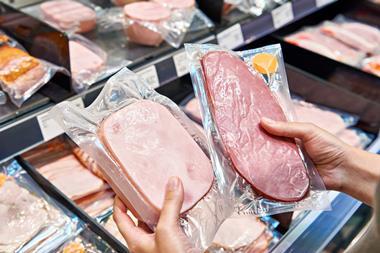
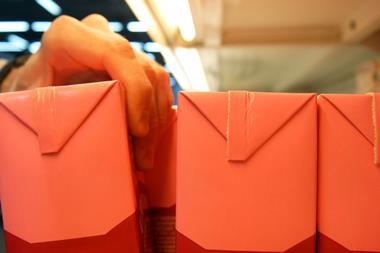


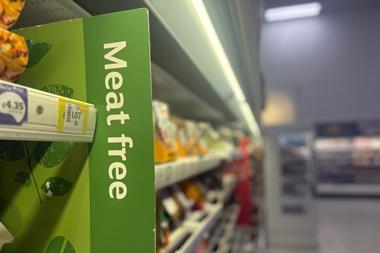
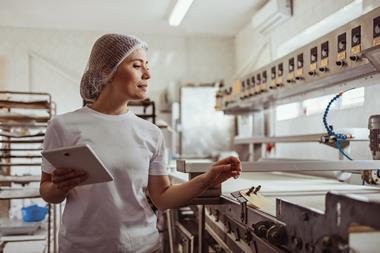
No comments yet